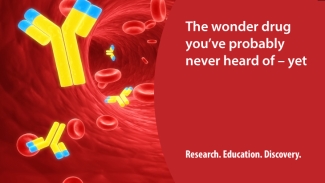International effort leads to better clinical guidelines for a serious illness affecting fetuses and newborns
Thursday, June 20, 2019 Denise Landry
The International Collaboration for Transfusion Medicine Guidelines (ICTMG) creates and promotes evidence-based clinical guidelines to optimize transfusion care in Canada and worldwide. The Centre for Innovation is proud to support the ICTMG by supporting ICTMG chair, Nadine Shehata, and hosting the ICTMG secretariat.
What is Fetal and Neonatal Alloimmune Thrombocytopenia?
FNAIT is a rare disease that occurs when a baby inherits platelet proteins from its father that are foreign to its mother. In response, the expectant mother’s immune system makes antibodies that destroy the developing baby’s platelets. Platelets circulate in blood and help prevent bleeding. When a fetus’ platelets are destroyed, the number of platelets in their blood is reduced (called “thrombocytopenia”), leaving the fetus vulnerable to bruising or bleeding. When bleeding occurs in the brain, FNAIT can become a devastating illness that leads to brain damage or death.

Why does this sound familiar?
Perhaps you have a good memory! There was a R.E.D. blog post in June 2017 about an earlier systematic review to determine the safest antenatal (before birth) treatment for FNAIT, which you can re-visit to learn more about this disease. That review found that treating the mother with intravenous immunoglobulin (IVIG - a solution of concentrated antibodies purified from donated plasma) was safer for the mother and fetus than more invasive treatments.
Or you may have heard of a more common disease called Hemolytic Disease of the Fetus and Newborn. This similar disease occurs when there is an incompatibility between a mother and father’s blood type, which leads to destruction of the baby’s red blood cells. Hemolytic Disease of the Fetus and Newborn is the reason women’s blood type is checked during pregnancy. Some women whose babies are at risk of this disease can be offered Rh Immune globulin (or “anti-D”) injections to protect the baby.
What is new now?
The same group that performed the systematic review in 2017 has published a new guideline in British Journal of Haematology. In total, this group has now completed three systematic reviews related to the management of FNAIT: one looked at antenatal (before birth) management of FNAIT (published in Blood); one looked at postnatal (after birth) management of FNAIT (published in The Journal of Perinatology) and the third examined the value of diagnostic tests in FNAIT (published in Vox Sanguinis).
The new guideline has 22 recommendations. The guideline group development team found that it is better to treat babies born with low platelets with whatever platelet product is available. It had previously been thought that these babies should receive matched platelets, but while matched platelets will work better, if they are not immediately available, it is better to begin treatment with whatever platelets are available than to wait.
Who are these guidelines for?
These guidelines provide doctors with evidence-based information that will help mothers and their babies benefit for the best pre- and post-natal care available for FNAIT. To ensure these guidelines are disseminated broadly and appropriately used, the ICTMG also developed resources for physicians to accompany the guidelines. These include a podcast about the guideline for physicians, a PowerPoint presentation and treatment algorithms. The ICTMG also developed patient pamphlets in seven languages and a podcast about FNAIT for patients.
Where can I learn more?
You can learn more about FNAIT on the ICTMG website, where you’ll find links to all the physician and patient resources mentioned above. Naitbabies.org, a patient organization run by families affected by FNAIT, also provides a lot of valuable information. You can also learn about research conducted by the Centre for Innovation to help understand FNAIT and uncover new treatments for this disease here.
Canadian Blood Services – Driving world-class innovation
Through discovery, development and applied research, Canadian Blood Services drives world-class innovation in blood transfusion, cellular therapy and transplantation—bringing clarity and insight to an increasingly complex healthcare future. Our dedicated research team and extended network of partners engage in exploratory and applied research to create new knowledge, inform and enhance best practices, contribute to the development of new services and technologies, and build capacity through training and collaboration. Find out more about our research impact.
The opinions reflected in this post are those of the author and do not necessarily reflect the opinions of Canadian Blood Services nor do they reflect the views of Health Canada or any other funding agency.
Related blog posts
The International Collaboration for Transfusion Medicine Guidelines (ICTMG) recently convened a panel to provide guidance for fetal neonatal alloimmune thrombocytopenia (FNAIT). Findings from a systematic review have been recently published in the journal Blood.
A new study by Centre for Innovation scientist Dr. Heyu Ni and his research team at St. Michael's Hospital in Toronto clarifies how maternal antibodies can cause fetal growth restriction and miscarriage, and introduces a new therapeutic target: natural killer cells.
Wonder drug it may be, but IVIg is a slippery fish. Even after 60 years, little is known about precisely how it works. An encounter with a scientist The first thing you notice when you walk into Dr. Don Branch’s office at 67 College Street in Toronto is how small it seems. And colourful, owing to an...


